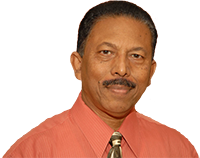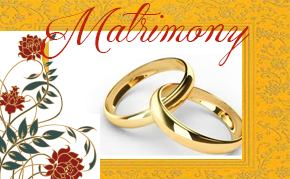
The most precious of all possessions is the freedom we enjoy by putting our trust in ourselves. When we make this choice, we allow ourselves to be guided by our own higher nature, the inner light of truth; for we are spiritual beings with a divine spark glowing in all of us. This divine spark is truly what we are, though we’re not aware of it.
The purpose of life is to become aware of our inner truth, and it must be our focus always. It’s, therefore, the most sensible that we follow the promptings of our own inner Self, not the mind, the lower self, that leaps at outside appearances like a grasshopper. Freedom, happiness, peace, and immortality are for those who live in constant awareness of their own inner truth, not for those who choose to follow the dictates of their mind—their lower nature.
Of course, there’s always a divine call silently invoking all of us to move towards our own true state of being—the higher Self. Most of us,however, fail to take heed of our inner voice, and move closer and closer to the ways of the mind. Caught in the spell of our own mind, we become attached to almost everything we come across in the course of our worldly interaction. The more we identify with worldly things, the more we’re alienated from the inner truth, which is our true home. As a result, we’re no longer the master of our own home, but a slave to the world outside.
There’s no freedom because we’re left to live at the mercy of our own mind.Sri Aurobindo, the philosopher-saint of modern India, has put it rightly when he says, “One should not be at the mercy of one’s feelings and sentiments, but master of oneself always.”
When we’re no longer our own master, which ideally we should be, our inherent power and freedom become severely limited, as is usually the case of a slave. Let me demonstrate this fascinating truth with a powerful analogy.When compared with us humans, how huge and powerful an elephant is! And yet we control and manipulate this powerful animal, as we choose!
Make no mistake, the elephant is powerful enough to escape to its own freedom, if it so chooses, by casting away all the restraints that we’ve put on it. But the elephant doesn’t do it!Because the elephant is not powerful enough to overcome the emotional impact that we’ve thrust upon it in the form of training and discipline. The elephant has the physical strength, but not the mental freedom that it once enjoyed before being domesticated.
Similarly, aren’t we also controlled and manipulated by a whole range of worldly things: doctrines, ideologies, beliefs, race, traditions, habits, religions, money, objects, and etc. They use us instead of we use them; they own us instead of we own them. All these happen when we’ve staked our own identity by shifting our allegiance to something that’s meant to be used as means only, but whichwe’ve made a treasure to live and die for.
In fact, none of the entities to which we identify have the inherent power to influence us other than the power that we give. Anita Moorjani writes: “Anything can be used for good or bad, but in and of itself, it’s just neutral. We choose to give it power. We put our judgements (both negative and positive) onto money, religion, race, and so on.” There’s nothing wrong in using worldly things and making them part of our life, but not life itself; we should never allow them to bind us.
But we do whenever we identify with a group, a sect, a political party, a race, a country, a religion, an ideology, a habit, a tradition, and so forth. The problem lies where our identification is so intense that we tend to live itas though we are what we’ve identified with. When we call ourselves Christians, Muslims, Catholics, Indians, Jewish, Republicans, Democrats, or Extremists, are they merely labels of identity?
Not really.We do mean much more than what the labels seem to suggest. In other words, we believe, think, and act in terms of our assumed identity. It’s only fair to say that we’re pretty much biased by being emotionally attached to worldly things. What follows then is a perpetual conflict between numerous biases that arise from numerous identifications.
Most of us tend to assume an identity either from habit, from tradition, from indoctrination, from insecurity, from fear, or from deprivation.J. Krishnamurty writes: “It is fear that makes for identification—identification with another, with a group, with an ideology, and so on.”
Identification is a false refuge; which’s why, Peace Pilgrim has these words of advice: “Why do you look at me? Look at your own self. Why do you listen to me? Listen to your own self…trust in your own inner voice…”
When we learn to live within, the benefits are many: health, happiness, inner peace, wisdom, and so on.A calm mind renews the body with vigor and vitality. Listen to Shakti Gawain: “When we begin to trust ourselves more, the body begins to renew itself and becomes healthy and filled with life energy.” The secret of our physical health is a healthy mind first and foremost, which is best served when we let the spirit within us govern our life.
The central theme of this essay cannot be put more profoundly than what Buddha had stated when he spoke his last words to his most devoted disciple, Ananda, moments before his final Nirvana: “Decay is inherent in all component things. Work out your salvation with diligence. Therefore, Ananda, be ye lamps unto yourselves, be ye a refuge to yourselves. Betake yourselves to no external refuge. Look not for a refuge in anyone beside yourselves.” We are the Truth and the only true refuge.

Comments





